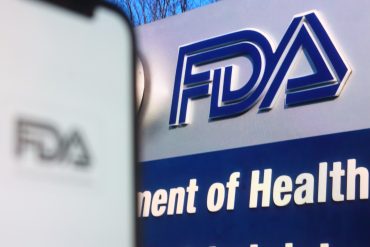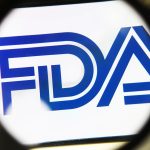
- Biotech Regulation
- Gene Therapy
- Market Volatility
FDA Biotech Shake-Up Sparks Regulatory Market Volatility
6 minute read

FDA biotech leadership changes disrupt drug approvals and trigger market volatility as senior officials depart amid agency restructuring
Key Takeaways
- FDA leadership departure creates market turbulence: Vinay Prasad’s exit from dual roles as CBER Director and Chief Medical Officer follows his controversial tenure, during which the S&P Biotech ETF dropped over 6% upon his initial appointment.
- Regulatory disruption affects drug approvals: Prasad’s leadership led to cancelled review meetings for therapies including Capricor Therapeutics’ Duchenne muscular dystrophy treatment, directly impacting company pipelines and development timelines.
- Senior FDA officials removed amid consolidation: Nicole Verdun, director of the Office of Therapeutic Products, and her deputy Rachael Anatol were placed on administrative leave, signaling broader organizational restructuring within the agency.
Introduction
The Food and Drug Administration faces significant leadership upheaval as Vinay Prasad abruptly departs his dual roles overseeing critical biotechnology regulations. His exit follows months of internal controversy and market volatility tied to his regulatory approach toward gene therapies and biologics approvals.
Prasad served as both Director of the Center for Biologics Evaluation and Research and Chief Medical and Scientific Officer, positions that gave him extensive authority over vaccines, gene therapies, and blood products. His departure removes a prominent critic of the agency’s previous regulatory practices from a position of substantial influence over the biotech sector.
Key Developments
Health and Human Services spokesperson Andrew Nixon confirms Prasad’s decision to return to California, stating the official “did not want to be a distraction to the great work of the FDA in the Trump administration.” The departure follows Prasad’s involvement in high-profile disputes over treatment approvals.
Most notably, Prasad strongly opposed the controversial approval of Sarepta’s gene therapy Elevidys for Duchenne muscular dystrophy. The treatment’s approval proceeded despite advisory committee dissent and internal disagreements, and was subsequently linked to two teenage patient deaths.
The leadership changes extend beyond Prasad’s departure. Nicole Verdun, the influential director of the FDA’s Office of Therapeutic Products, and her deputy Rachael Anatol were placed on administrative leave. Industry professionals viewed Verdun as a stabilizing force within the agency’s regulatory framework.
Market Impact
Biotech markets demonstrate acute sensitivity to FDA leadership changes, with the S&P Biotech ETF dropping more than 6% following news of Prasad’s initial appointment. The sharp decline reflects investor concerns about potential regulatory tightening and increased scrutiny of novel therapies.
The market reaction highlights how regulatory uncertainty translates directly into financial consequences for biotech companies. Investors fear that heightened scrutiny could delay product approvals or increase development costs, potentially affecting revenue streams for firms dependent on FDA clearance.
Operational disruptions have already materialized, with important review meetings cancelled for therapies including treatments from companies like Capricor Therapeutics. Such delays can derail product launches and directly impact company valuations and competitive positioning.
Strategic Insights
The consolidation of regulatory authority under Prasad represented a shift toward centralized decision-making within the FDA. This approach promised streamlined processes but risked creating bottlenecks, particularly given reports of Prasad’s limited involvement in administrative duties and frequent absences from key meetings.
The organizational restructuring signals a broader industry trend toward increased scrutiny of biologics approvals. Companies developing gene therapies and innovative treatments face heightened demands for robust clinical evidence, potentially extending development timelines and increasing costs.
The departure of experienced regulatory staff creates knowledge gaps that could impact the agency’s ability to evaluate complex biotechnology products efficiently. This institutional disruption particularly affects the cell and gene therapy sector, where Verdun’s expertise was considered crucial for maintaining review standards.
Expert Opinions and Data
Industry leaders express concern about the loss of regulatory expertise. Ultragenyx CEO Emil Kakkis laments the departure of experienced figures like Verdun, highlighting the importance of institutional knowledge in maintaining effective oversight of innovative therapies.
According to STAT, multiple agency employees describe Prasad’s apparent disinterest in administrative responsibilities, suggesting potential gaps in regulatory oversight during his tenure. Observer Courtney Rice characterizes the personnel changes as a consolidation of power, indicating Prasad’s effort to centralize influence over industry interactions.
The regulatory disruption extends to specific therapeutic areas, with the Duchenne muscular dystrophy treatment sector facing particular uncertainty. The controversy surrounding Elevidys approval and subsequent patient deaths underscores the critical nature of regulatory decision-making in rare disease treatments.
Conclusion
Prasad’s departure leaves the FDA navigating significant leadership transitions while managing industry expectations for regulatory consistency. The biotech sector faces continued uncertainty as the agency works to fill critical positions and establish new regulatory frameworks.
The market’s negative reaction and operational disruptions demonstrate the immediate business impact of regulatory leadership changes. Companies dependent on FDA approvals must now adapt to evolving oversight standards while managing increased development risks and potential timeline delays.








